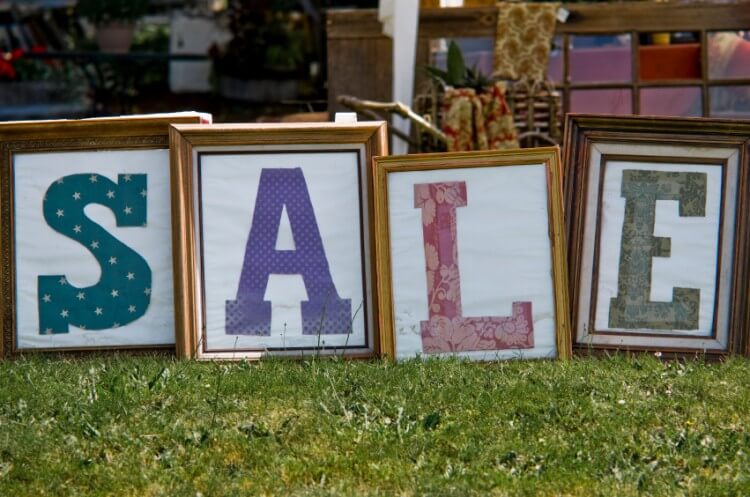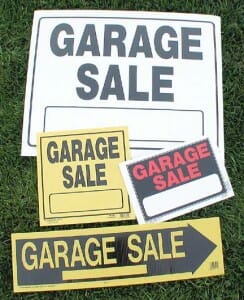How to host a successful garage sale
 One person’s trash is another person’s treasure. That pretty much explains the mysterious allure of the garage sale, an annual springtime ritual that also serves as a great excuse to de-clutter your home (and make some extra cash).
Of course, you’re not the only home on the block hoping to pawn off unwanted household items this spring. A successful garage sale requires organization, planning and a bit of luck. Here’s a step-by-step guide to making the most of your next junk sale.
1. Trash of treasure? Sorting through your junk can be emotionally difficult for those of us who get attached to their “stuff.” The best approach is to set firm rules for what you’ll keep and what you’ll sell. Some sellers use the year rule – if I haven’t worn it, read it, cooked with it, used it or looked at it in the past year, I’m selling it. Go through every room in your house, methodically sorting between items you absolutely need and items you can live without.
2. Clean up your merchandise A little bit of polish can go a long way toward increasing the perceived value of that table lamp or toaster. Fix up all your items as best you can before displaying them. Clean plastic toys in a tub filled with hot, soapy water. Put fresh shoelaces on shoes and hang clothes on coat hangers. Test electronics. Throw out anything that is broken, damaged or that might present a danger to the buyer. Whenever possible, display items in their original boxes or containers, with instructions and spare parts included.
One person’s trash is another person’s treasure. That pretty much explains the mysterious allure of the garage sale, an annual springtime ritual that also serves as a great excuse to de-clutter your home (and make some extra cash).
Of course, you’re not the only home on the block hoping to pawn off unwanted household items this spring. A successful garage sale requires organization, planning and a bit of luck. Here’s a step-by-step guide to making the most of your next junk sale.
1. Trash of treasure? Sorting through your junk can be emotionally difficult for those of us who get attached to their “stuff.” The best approach is to set firm rules for what you’ll keep and what you’ll sell. Some sellers use the year rule – if I haven’t worn it, read it, cooked with it, used it or looked at it in the past year, I’m selling it. Go through every room in your house, methodically sorting between items you absolutely need and items you can live without.
2. Clean up your merchandise A little bit of polish can go a long way toward increasing the perceived value of that table lamp or toaster. Fix up all your items as best you can before displaying them. Clean plastic toys in a tub filled with hot, soapy water. Put fresh shoelaces on shoes and hang clothes on coat hangers. Test electronics. Throw out anything that is broken, damaged or that might present a danger to the buyer. Whenever possible, display items in their original boxes or containers, with instructions and spare parts included.


